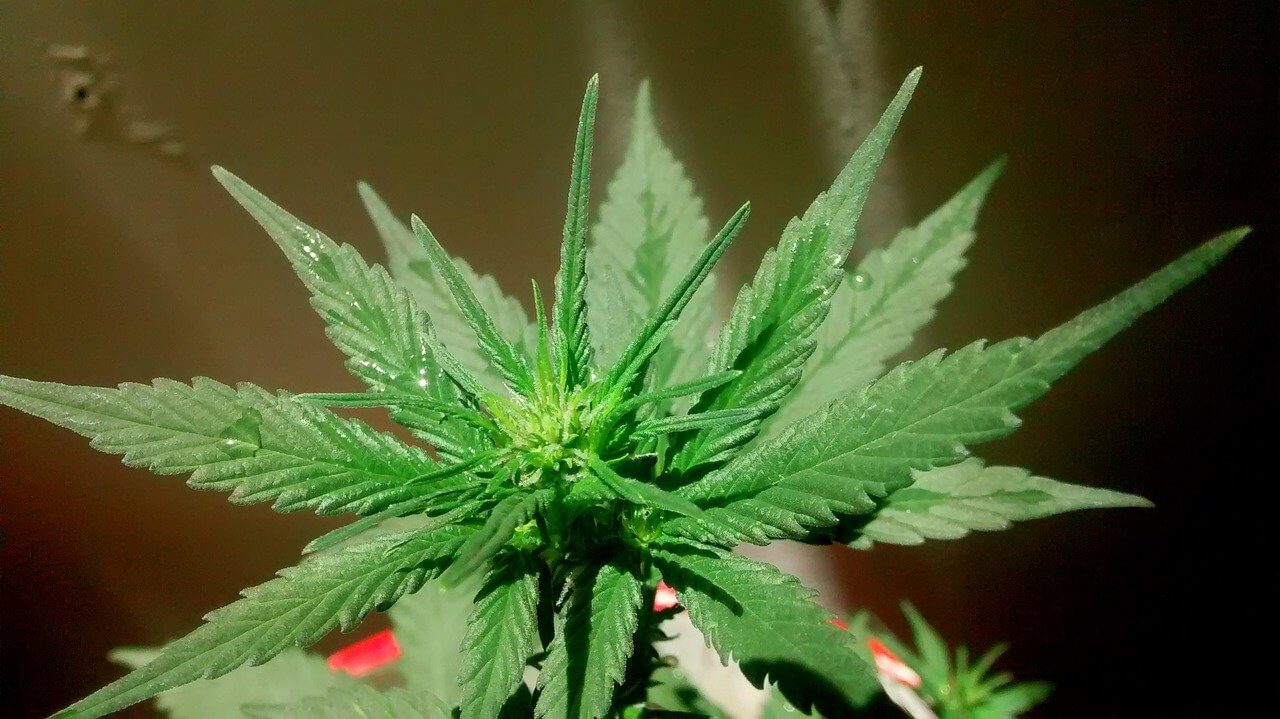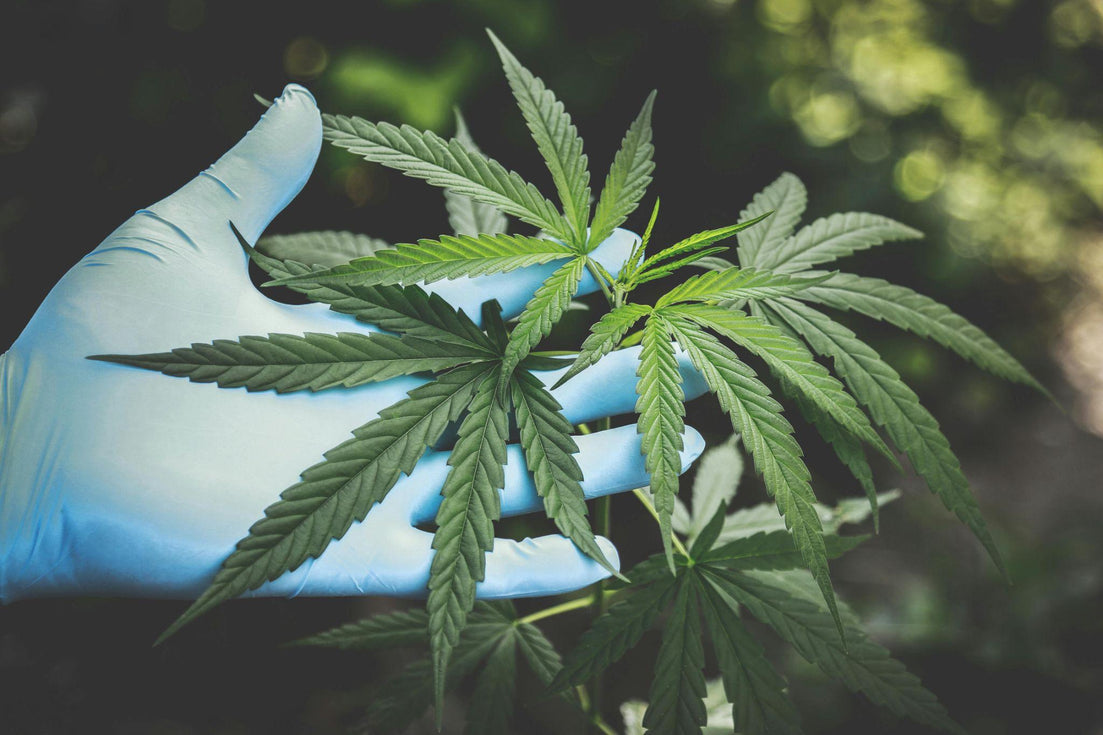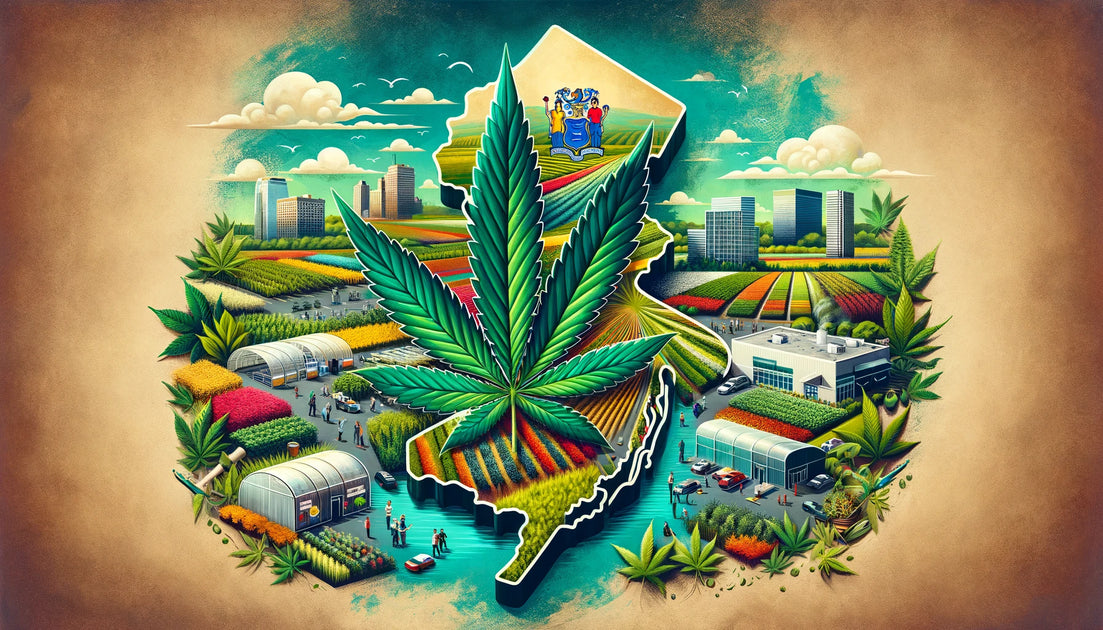Your cart is currently empty.

More and more THC cousins are coming nowadays, and all THC forms have their own different strengths, benefits, and side effects. There has recently been a boom in public demand for THC alternatives such as delta 8 THC and delta 10 THC.
THCP, a natural cannabinoid derived from cannabis, has lately begun to flood on the market. THCP is the most powerful type of THC and is 40 times more potent than THCV.
We'd like to introduce THCV, a less potent THC alternative for those who want a less powerful kick with their brain receptors. This THC cannabinoid is reported to be less potent than delta 8, delta 9, delta 10, and THC-O, and THCP means that it is the less potent type of THC.
So, what exactly are THCP and THCV? What are their effects?
Here's everything you need to know before making a purchase.
What is THCP?
THCP (9-Tetrahydrocannabiphorol) is a naturally occurring analog of THC that was recently found.
The inclusion of two extra carbons in the molecular structure of THCP distinguishes it from normal THC. THC has 5 carbons on its alkyl side chain, whereas THCP has 7. This slight variation is sufficient to make THCP far stronger than delta 9 THC.
While this cannabinoid was first found in 2019, it is thought to have existed for a long time undiscovered. Some researchers, such as Dr. Giuseppe Cannazza, believe THCP is why some marijuana strains are so much more psychotropic than others despite having the same or lower THC contents.
THCP was discovered by chance when an Italian research group supported the UNIHEMP research effort. The scientists were investigating the molecular composition of a strain known as FM2.
The researchers discovered some unusual findings using high-performance mass spectrometry and other precise testing tools. Their research, which emphasized THCP and CBDP, was released in December 2019.
THCP has been reported to have more than 40 times the binding affinity than THCV. Many users of THCP believe it is 5 to 10 times more strong than THC. However, the exact potency of this cannabinoid is still being viewed.
What Is THCV?
Cannabinoids are a class of compounds found in cannabis plants. Delta 9 THCV was found in the 1970s as a cannabinoid. While most cannabinoids, including THC and CBD, are byproducts of CBGA synthesis, THCV is the end byproduct of CBGVA synthesis. When exposed to heat or light, CBGV changes to THCVA, which then becomes THCV.
The greatest prevalent source of THCV is pure sativa's from Pakistan, China, Africa, Afghanistan, Nepal, India, and Thailand. The THCV cannabinoid, like CBD, can be isolated from plants using the advanced tech.
Delta 9 THCV has the potential for psychoactive effects at high doses. THCV produces psychoactive effects that are generally stimulating and promote mental clarity at high doses of powerful strains. They are also quick to act and dissipate.
Effects Of THCP
The effects of THCP are difficult to calculate through scientific testing, so the majority of effects of the THCP compound originate from people who have used this and reported their thoughts.
There isn't much data on the effects of THCP. However, based on anecdotal evidence, this cannabinoid appears to have the same general effects as delta 9 THC but with more stimulating action and a stronger visual and aural perception alteration.
Although THCP is not hallucinogenic, the experience is frequently described as psychedelic-like.
You won't see things, leave your body, or experience traditional psychedelic effects. Still, it will shift your perception away from the center. You may become interested in things you would not ordinarily be interested in. Music may sound different than you recall, and colors may appear louden.
The adverse effects are also increased.
People who experience anxiety or paranoia when using THC should avoid THCP in favor of a more soothing alternative such as delta 8 THC or THCV.
Effects Of THCV
Manufacturers claim that this cannabinoid is euphoric, elevating, refreshing, and motivational. However, reactions have been mixed. While some users say it's fun, others believe it's not worth the buzz.
Though it is not promoted as an anti-inflammatory, THCV has been shown to have anti-inflammatory properties, including the ability to reduce discomfort caused by inflammation.
It has also been demonstrated to be neuroprotective and potentially beneficial for the signs of illnesses such as Parkinson's disease and epilepsy.
THCV has been shown to suppress hunger via blocking CB1 receptors in terms of weight reduction. Another research discovered it to be useful for weight reduction. The CB1 neutral antagonist THCV reduces resting-state functional connection while increasing connectivity in the cognitive control network and dorsal visual stream network.
This impact profile indicates that THCV may have therapeutic efficacy for obesity in areas where functional connectivity has been identified to be disrupted. This demonstrates that the benefits of THCV on appetite suppression have nothing to do with counteracting marijuana use; it is being examined on its own for use in losing weight.
Comparing the Potency
Today, THCP is the most potent naturally occurring cannabinoid. In terms of potency, it is most similar to synthetic versions of THC named THC-O.
THCP is around 40 times more potent than THCV and 5 to 10 times more potent than THC-O.
The degree of effects for a particular dose is referred to as potency. THC potency may be assessed in two ways: we can test the compound's binding affinity on the target receptors (CB1 and CB2 receptors), and we can evaluate the qualitative effects of two or more varieties of THC at the same dose.
Conclusion
The realm of THCP is still in its early phases. With so much interest in the alternative cannabis field in the last year, it's difficult to consider that THCP is not becoming more readily available in the market.
With a stated potency range of up to 33 times greater than delta 9 THC — this cannabinoid is an easy sell for companies selling euphoric cannabis extracts.
The fundamental question is how governments will decide to regulate substances such as THCP and THC-O. Neither of these compounds is specifically listed on the list of restricted substances in the United States. However, they are likely forbidden by proxy under the Federal Analog Act. Delta 8 THC could possibly be included on this list. However, the government has yet to take a clear stance against these cannabinoids. For more information on these topics visit www.stateofmindlabs.com.
To summarize, we are expected to witness a significant increase in interest for THCP during the next months. The size of the public market sector is increasing dramatically.



